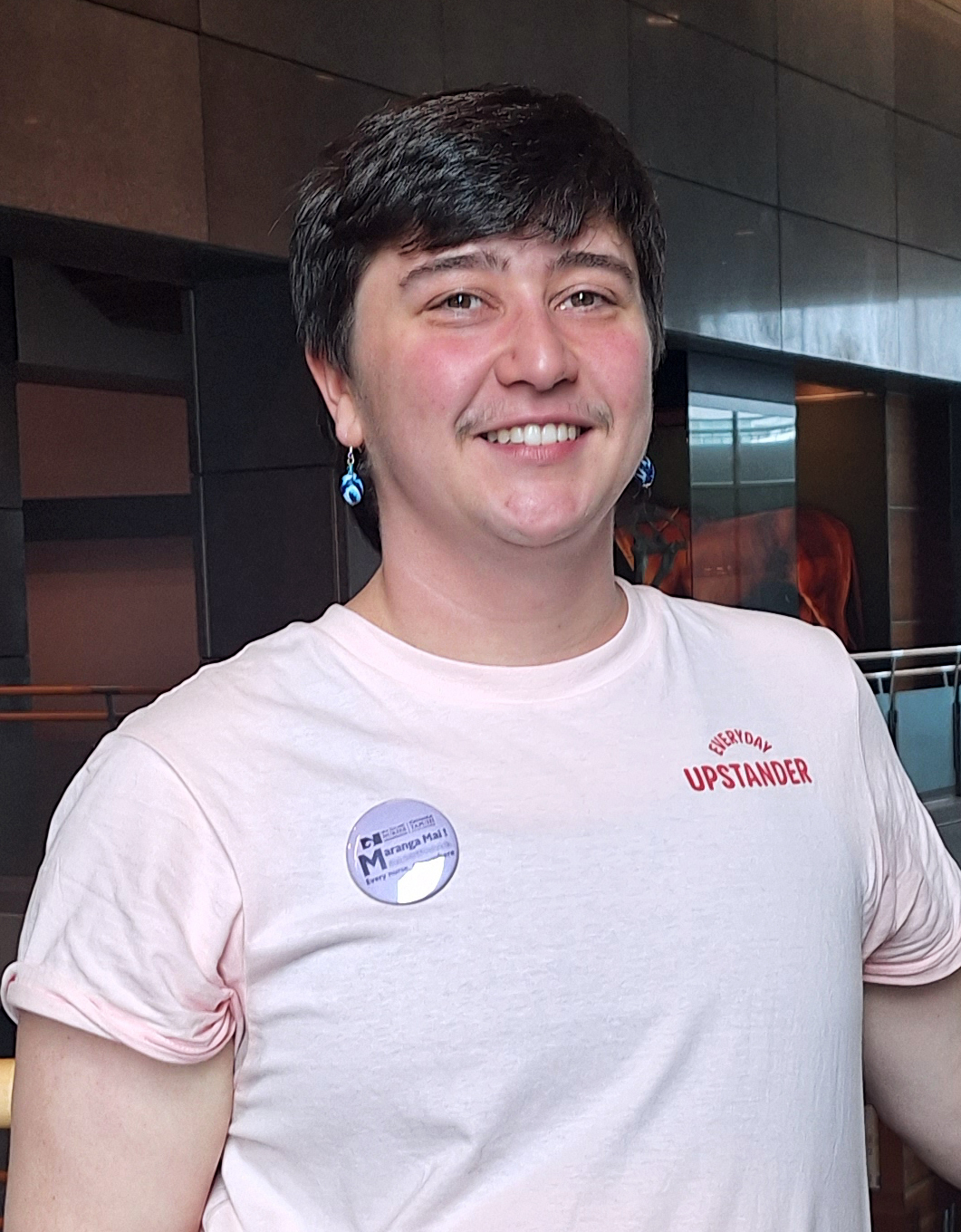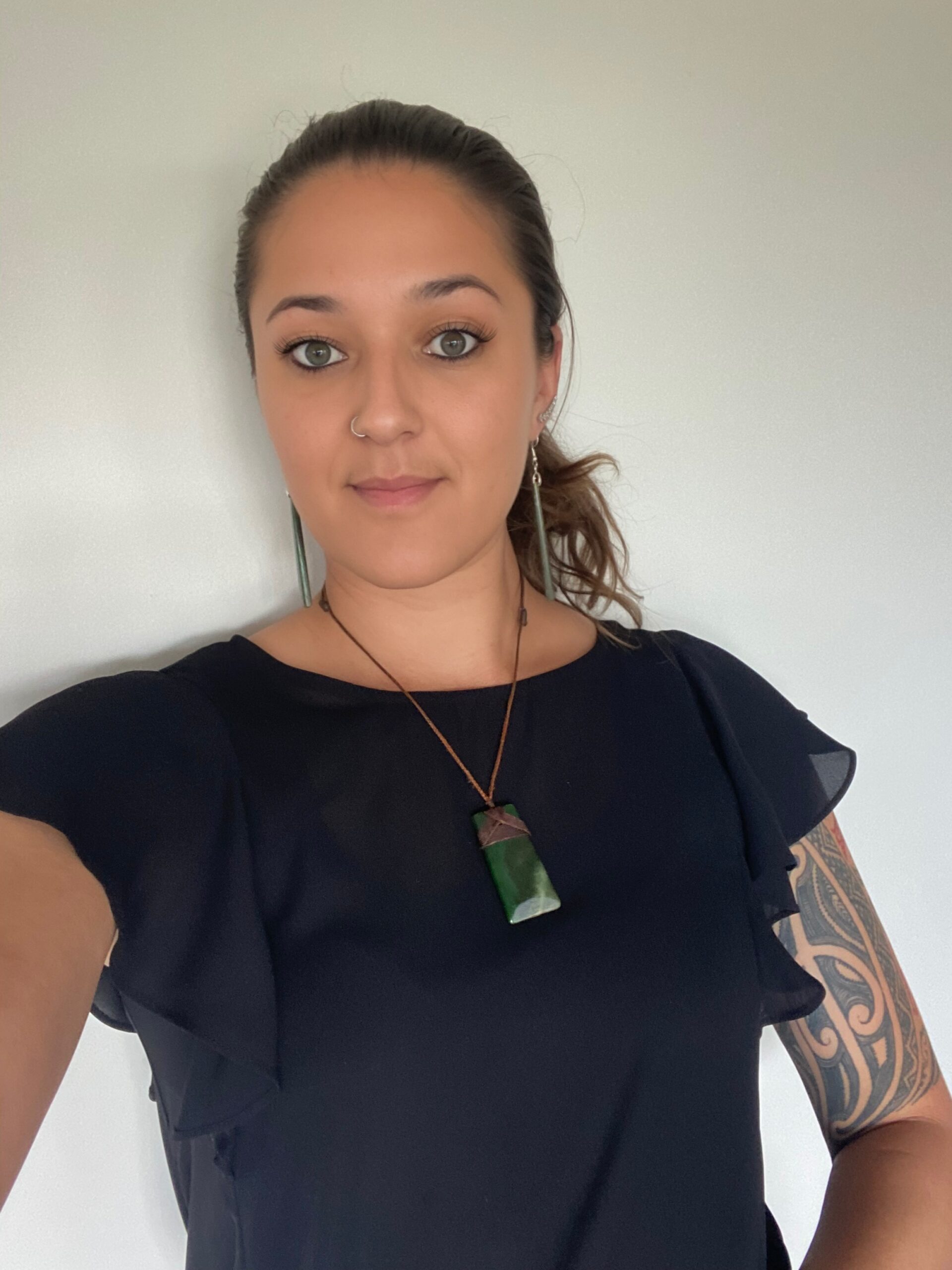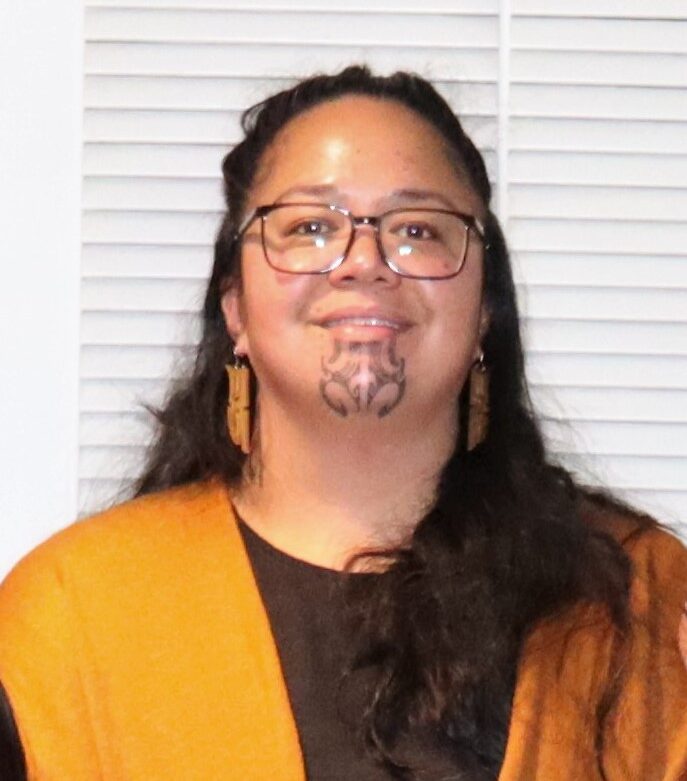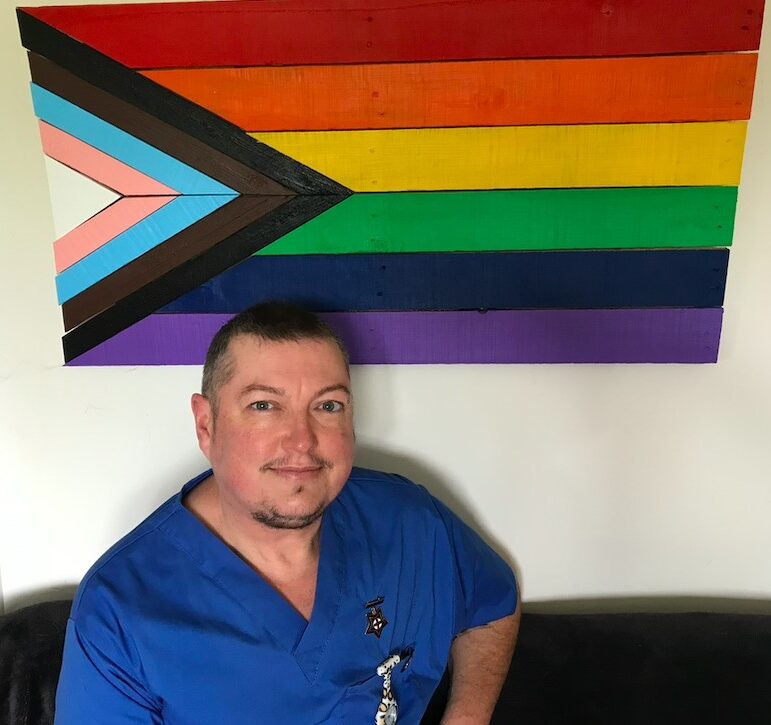Nursing ‘highly gendered’ profession

Third-year UCOL rainbow nursing student Elliott Pepper said nursing was still an “old school” and biased profession when it comes to gender diversity.
“Nursing as a workforce, is really aware of cultural safety but it is still very much one of the old school professions in that it’s still highly gendered, still highly hierarchical,” Pepper told Kaitiaki.
“So as a rainbow student you’re in these very cis-normative, heteronormative hierarchies.”
Elliott said in his experience, discrimination was definitely there, even if people didn’t realise it.
“I don’t think any nurse is going to be explicitly homophobic or transphobic but everyone is subject to unconscious bias. I definitely think within the profession there is that unconscious bias present.”
Rainbow students like Mel Meates who had gone before and succeeded were very important role-models for him, said Pepper, who is a queer trans man.
“If it wasn’t for them, honestly I would have found it really hard to be myself and feel like I fit in within nursing as a whole, as a student.”
Pepper said his experiences of discrimination usually sprang from ignorance rather than hostility but could be “jarring”.
“Then there are things like being uncertain about which bathroom I should use at uni, not knowing what people’s beliefs are about the rainbow community – being seen as different, which sometimes means I find it hard to fit in,” Pepper told Kaitiaki. “All these small experiences add up to a bigger picture of feeling like an outsider.”
UCOL itself had always been very supportive of Pepper’s rainbow identity over the past three years, and he was pleased to see it supporting one of the few scholarships specifically for rainbow students.
Not only would it send a message of acceptance, but it would provide practical help to the rainbow community whose transgender members experienced higher levels of homeless and other financial disadvantages. Some had to hide their identity because they relied on their family for financial support but knew they would not be accepted.
“But it’s mostly an incentive for rainbow students to stick it out and to contribute, see their value in the community – and see themselves as a valued member of the profession.”
It also sent a message of “solidarity and inclusivity” to rainbow people at a time where there is a lot of anti-trans pushback in places like the United States, he said. “This is a message that it’s okay as a patient to talk about, be open about your rainbow identity.”
While Aotearoa was “pretty inclusive” there remained a persistent fear of being discriminated against – evidenced by Burnett Foundation research suggesting in Aotearoa 50 per cent of gay and bisexual men haven’t disclosed their sexuality to their GP.
“So this is a great tactical way of breaking down that stigma and letting patients know it’s okay to be who you are, it’s not something that you have to hide when you’re seeking healthcare.”
Humanity’s very strength was in its diversity, he said.
“I really believe strength is in diversity and that’s our main strength as humans – we’re all different and that’s really good, we all have our own perspectives on things.”
Universal College of Learning (UCOL) Te Pūkenga and Te Whatu Ora Midcentral have recently launched a $1500 rainbow nursing scholarship — the brainchild of UCOL Palmerston North nursing graduate Mel Meates.
Meates said it was a “huge” step for rainbow or LGBTTQI+ [lesbian, gay, bisexual, transgender, takatāpui, queer and intersex +] nursing ākonga (students) in Aotearoa. “This is the first time that a scholarship specifically for LGBTTQI+ nursing ākonga has been established in the entire country.”
As someone who couldn’t find any scholarships when they were a student, Meates knew what a difference one could make.
Like Māori, Pasifika and women, rainbow people often faced discrimination — many from their own families — which could create an economic as well as psychological disparity, Meates said.
‘It can start as a kid. Kids are cruel when anybody is different.’
This created not only economic but broader psychological challenges for rainbow people — who endured worse mental health and addiction rates than non-rainbow people,1 said Meates, who has struggled with depression and addiction.
“If you’re struggling with trying to find a safe place to live or are depressed and can’t even get out of bed, then you’re not going to be looking at doing any further study.”
Homophobic abuse and hate crimes had also been a feature of their life over the years, said Meates, who shares their experiences in I could nearly see me — the real me.
After coming out as transgender seven years ago, Meates found it hard dealing with the challenges of both transitioning and studying as a mature student. Student allowances are only available for three, rather than five, years and coming out as transmasculine, non-binary (after identifying as a lesbian for more than 20 years) was also challenging.
Transmasculine, non-binary is someone assigned female at birth whose gender identity is masculine but not necessarily male.
“At 42, coming out trans, I have to go get on a different bus which was worse than the one I started on, and start at the back of the bus again.”
NZNO national student leaders Shannyn Bristowe and Stacey Wharewera said the scholarship “not only provides invaluable financial support for individuals within our rainbow community to pursue nursing education, but also holds immense significance in fostering a responsive and inclusive nursing workforce in Aotearoa”.

Making it it easier for rainbow students to access training, also helped create a health-care environment that embraced diversity, they said.
“Investing in locally trained nurses through this scholarship ensures that we cultivate a culturally and clinically safe workforce, further enhancing the quality of healthcare delivery and promoting a holistic approach to patient care.”
UCOL Te Pūkenga’s Ashwini Patel, who runs the scholarship programme, said it was a “no brainer” to fill this gap in the community after being approached by Meates.
‘That was one reason I wanted to become a nurse – to make things better for people like me.’
“We’ve heard from a few ākonga who had been looking for rainbow scholarships at UCOL, so it was on our radar.”
In Meates’ experience, the health system was not safe for trans people — which had made the former orderly, support worker and cleaner want to become a nurse.

“So many health professionals just don’t know how to be culturally safe with trans people. GPs don’t how to write a referral letter – or where to send one. There’s just a lack of knowledge, lack of services. That was one reason I wanted to become a nurse – to make things better for people like me.”
Meates is now a registered nurse in aged care, and also a rainbow education facilitator at Palmerston North Regional Hospital who does diversity training for UCOL and MidCentral Te Whatu Ora staff.
‘I really believe strength is in diversity and that’s our main strength as humans.’
The scholarship aimed to support nursing ākonga who are part of the rainbow community and need support with course-related costs or financial support during a placement. It was a “first step” to ensuring nurses met the needs of everyone in the community — and Meates hoped it would take off nationally.
“I’d love to see a knock-on effect, with more rainbow scholarships popping up.”
Applications for the June 2024 scholarship are open now, until April 30. Details can be found here.
References
- Counting Ourselves. (2022).



